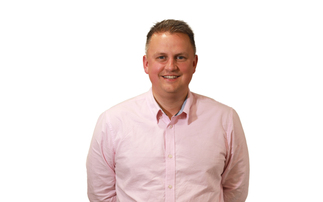Often misunderstood by the public, schizophrenia is a life-long mental disorder that can affect a sufferer's career opportunities and personal relationships. Scott Power outlines the symptoms.
Schizophrenia is arguably the most distressing and disabling mental disorder. The first signs of schizophrenia tend to surface in adolescence or young adulthood, and symptoms are confusing and can be distressing to family and friends.
People with schizophrenia suffer from problems with their thought processes, leading to hallucinations, delusions, disordered thinking and unusual speech or behaviour. This affects the ability to interact with others, and people with schizophrenia often withdraw from the outside world.
Contrary to popular belief, people with schizophrenia do not have 'split personalities'. Another common belief is that sufferers are dangerous - but while this may be true, it would only occur during the acute phases of the disease. It is fair to say that people with schizophrenia are far more likely to be victims of violence and crime than to commit violent acts themselves.
Life-long illness
Schizophrenia is a life-long illness and most patients will need treatment for the rest of their lives. This means they will miss out on career opportunities, stable relationships and friendships. In addition, due to a lack of public understanding, people with schizophrenia often feel isolated and stigmatised, and may be reluctant or unable to talk about their illness. The schizophrenic disorders include the following sub-types:
n Catatonic - showing marked psychomotor disturbances, such as immobility, stupor or excitement. Behaviour may alternate between hyperkinesis and inactivity/stupor or automatic obedience and negativism.
n Disorganised or hebephrenic - disordered, inappropriate or regressive behaviour that may appear childish. The delusions and hallucinations are fleeting and fragmentary. There is a tendency to social isolation and negative symptoms predominate.
n Paranoid - marked by integrated, often stable persecutory or grandiose delusions, usually accompanied by hallucinations.
n Residual - history of at least one previous schizophrenic episode with continuing evidence of illness but no prominent psychotic symptoms. This is a chronic phase of the illness characterised by a predominance of negative symptoms.
n Undifferentiated - prominent psychotic symptoms that cannot be classified in any other category.
n Simple schizophrenia - there is progressive insidious development of odd conduct and decline in social performance. These are the negative features seen in residual schizophrenia without psychotic symptoms.
n Post-schizophrenic depression - this is a depressive episode occurring after a schizophrenic illness. While positive and negative symptoms of schizophrenia may be present, depression is the predominant feature and there is an increased risk of suicide.
Signs, symptoms and diagnosis
Schizophrenics have both 'positive' and 'negative' symptoms. Positive symptoms include hallucinations, delusions, disorganised speech with formal thought disorder, and disorganised, bizarre or catatonic behaviour. If two or more positive symptoms are shown, then diagnosis of schizophrenia can be confirmed. In addition, negative symptoms include apathy, paucity of speech and blunted or inconsistent emotional responses not due to depression or drug treatment.
Schizophrenia affects between 1% and 2% of people worldwide, and men and women are at equal risk of developing the illness. Whereas in men the illness tends to surface between the ages of 16 and 25, most females develop symptoms between the ages of 25 and 30.
Despite clear evidence to the contrary, many people still believe that schizophrenia is caused by poor parenting or a lack of will power - but nothing is further from the truth.
Schizophrenia is a complex illness, and scientists believe it is caused by a number of different factors that act together, including genetic influences, trauma (injury) to the brain occurring during or around the time of birth, in addition to the effects of social isolation and/or stress. In some cases the use of drugs, such as cannabis, can also be a contributing factor. However, as yet, no single factor has been identified as the cause of schizophrenia.
Despite the availability of new medication with fewer and less severe side effects, only one in five fully 'recovers' from the illness, and one in 10 people with schizophrenia commits suicide. A staggering 30% to 40% will attempt suicide at least once.
Treatment options
Schizophrenics can by treated with anti-psychotic drugs that can reduce symptoms and help the patient to lead a more 'normal' lifestyle. Other forms of treatment include rehabilitation programmes, psychiatric discussions, cognitive therapy, self help groups and social skills training.
In more severe cases, in-patient hospital admission will be required, and in exceptional cases, even electro-convulsive therapy or brain surgery may be called upon. n
Scott Power is life and disability underwriter at Aegon Individual Protection
Sources
Swiss Re manual - www.swissre.com
www.schizophrenia.com
www.mind.org.uk
www.nimh.nih.gov











